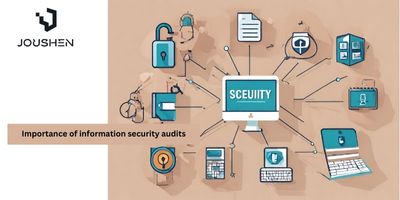Landscape of Information Security Audits: SOC 2, PCI DSS, and ISO 27001
In today’s data-driven world, organizations are increasingly handling sensitive customer and employee information. This necessitates robust information security measures to protect these valuable assets from unauthorized access, modification, or disclosure. Information security audits play a crucial role in assessing an organization’s security posture and ensuring compliance with industry standards and regulations. Three prominent audits, SOC 2, PCI DSS, and ISO 27001, each address specific security aspects and offer distinct benefits to businesses.
SOC 2 Audits: Building Trust and Transparency
SOC 2 (Service Organization Control 2) is an audit framework developed by the American Institute of Certified Public Accountants (AICPA) specifically for service organizations that store and process customer data. It focuses on five trust service criteria: security, availability, processing integrity, confidentiality, and privacy.
Benefits of SOC 2 Audits:
Enhanced trust and credibility with customers, partners, and investors
Demonstrated commitment to data security and privacy
Reduced risk of data breaches and non-compliance penalties
PCI DSS Audits: Safeguarding Payment Card Data
The Payment Card Industry Data Security Standard (PCI DSS) is a set of security standards mandated by major credit card companies to protect payment card information. It applies to any organization that handles credit card data, regardless of size or industry.
Benefits of PCI DSS Audits:
Prevention of data breaches and financial losses
Reduced exposure to fines and penalties
Increased consumer confidence in payment security
ISO 27001 Audits: Implementing an Information Security Management System (ISMS)
ISO 27001 is an international standard for information security management systems (ISMS). It provides a framework for organizations to establish, implement, operate, monitor, review, maintain, and continually improve their ISMS.
Benefits of ISO 27001 Audits:
Systematic approach to managing information security risks
Enhanced protection of sensitive information assets
Improved compliance with other regulatory requirements
Technical Considerations for Each Audit
Each audit has its own technical requirements and considerations that organizations must address.
SOC 2:
Identify and assess security controls related to the five trust service criteria
Implement appropriate security controls based on the risk assessment
Continuously monitor and test the effectiveness of security controls
PCI DSS:
Protect cardholder data from unauthorized access, modification, or disclosure
Implement strong encryption and access controls
Regularly monitor and test systems for vulnerabilities
ISO 27001:
Develop and document an ISMS tailored to the organization’s specific needs
Identify and assess information security risks
Implement and maintain security controls to mitigate identified risks
Continuously monitor and review the effectiveness of the ISMS
Navigating the Cybersecurity Audit Landscape: SOC 2, PCI DSS, and ISO 27001
In today’s increasingly interconnected world, cybersecurity has become a critical concern for businesses of all sizes. Data breaches and cyberattacks can have devastating consequences, including financial losses, reputational damage, and even legal liability. As a result, many organizations are turning to cybersecurity audits to assess their security posture and identify areas for improvement.
SOC 2
The Service Organization Controls (SOC) 2 framework is a set of standards developed by the American Institute of Certified Public Accountants (AICPA) for organizations that store and process customer data. SOC 2 audits are designed to evaluate whether an organization’s security controls are adequate to protect customer data from unauthorized access, use, disclosure, disruption, modification, or destruction.
PCI DSS
The Payment Card Industry Data Security Standard (PCI DSS) is a set of security standards developed by the Payment Card Industry Security Standards Council (PCI SSC) for organizations that handle credit card information. PCI DSS audits are designed to evaluate whether an organization’s security controls are adequate to protect cardholder data from unauthorized access, use, disclosure, disruption, modification, or destruction.
ISO 27001
The ISO 27001 standard is an international standard for information security management systems (ISMS). ISO 27001 audits are designed to evaluate whether an organization’s ISMS is effective in protecting its information assets from unauthorized access, use, disclosure, disruption, modification, or destruction.
Benefits of Cybersecurity Audits
Cybersecurity audits can provide a number of benefits to organizations, including:
Improved security posture: Audits can help organizations identify and address security vulnerabilities before they can be exploited.
Increased compliance: Audits can help organizations comply with industry regulations and contractual obligations.
Enhanced customer trust: Audits can help organizations demonstrate to customers that they are committed to protecting their data.
Reduced risk of cyberattacks: Audits can help organizations reduce their risk of cyberattacks and the associated costs.
Joushen Cybersecurity: Your Trusted Partner for Cybersecurity Audits
At Joushen Cybersecurity, we are a leading provider of cybersecurity consultancy and assessment services in Saudi Arabia. We offer comprehensive SOC 2, PCI DSS, and ISO 27001 audits to help organizations of all sizes achieve their cybersecurity goals.
Our experienced and certified auditors will work with you to:
Understand your organization’s unique security needs.
Identify and assess security risks.
Develop and implement effective security controls.
Monitor and improve your security posture over time.
With Joushen Cybersecurity, you can be confident that your organization is taking the necessary steps to protect its information assets from cyber threats. Contact us today to learn more about our cybersecurity auditing services.

